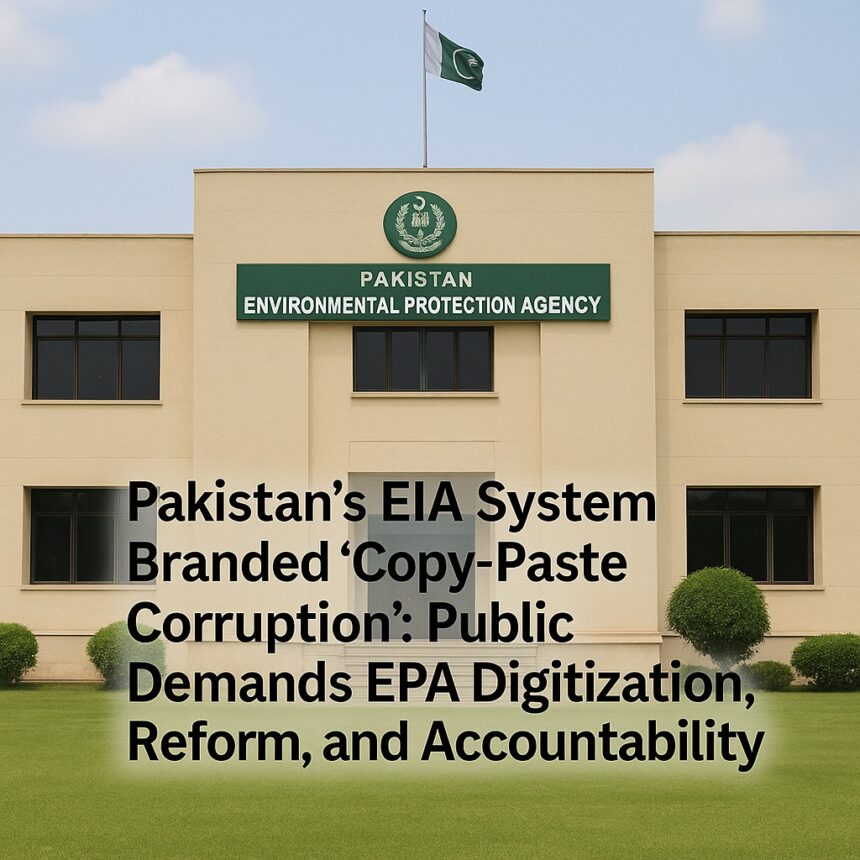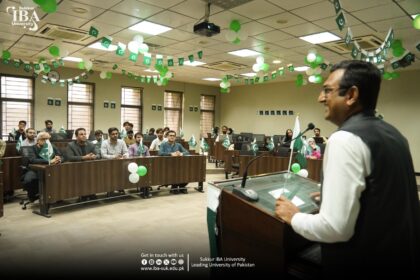Pakistan’s EIA System Branded ‘Copy-Paste Corruption’: Public Demands EPA Digitization, Reform, and Accountability
Nadeem Tanoli
Islamabad: A growing number of professionals and citizens are voicing serious concerns over Pakistan’s Environmental Impact Assessment (EIA) process, calling it outdated, corrupt, and disconnected from scientific reality. The debate erupted in the comments section of a post by the Community for Environment and Climate Change, where environmentalists, ex-EPA officials, and citizens painted a grim picture of inefficiency, lack of transparency, and weak enforcement.
Commenters highlighted how EIAs have devolved into little more than formalities. Malik Muhammad Shehryar sarcastically described the process as simple “Ctrl+C then Ctrl+V,” mocking the routine copy-paste approach allegedly used in report submissions. Momin Abass added that EIAs are prepared “in a Pakistani way and approved by a Pakistani system,” where real baseline environmental issues are largely ignored.
Former EPA official Zia Ktk further reinforced the mistrust, noting that he was repeatedly excluded from the EIA process during his tenure, despite being among the most senior officers. He also hinted at under-the-table financial dealings and irregularities in the issuance of No Objection Certificates (NOCs), further questioning the credibility of EPA operations.
Hamid Marwat and Zakwan Maitla pointed out systemic corruption and the lack of technical expertise within EPAs, while Sohail Shahzad exposed glaring oversight gaps in major projects like the River Ravi Urban Development and imported coal power plants in Sahiwal. “Was any proper EIA done? What about wastewater management? Where was EPA?” he asked, warning of catastrophic environmental consequences.
In the midst of this criticism, constructive reform proposals emerged. Noor Ul Hadi outlined a five-point action plan for strengthening EPAs, including empowering them with enforcement authority, building human resource capacity, equipping them with scientific tools, ensuring adequate funding, and eliminating political interference.
Farrukh Ahmad proposed a complete digital overhaul of the EIA process. He suggested implementing a live online tracking system, online-only submissions, and limited ground verification. Ahmad emphasized that all EIA reports should be made public, compliance reports should be accessible online, and public hearings should be announced with at least a week’s notice. “Stakeholders must be allowed to review and comment online—this is what EIA was meant to be,” he argued.
Other commenters, including Noor Ul Hadi and Waseer Ahmed, agreed that provincial EPAs are in dire need of restructuring and must be aligned with international environmental standards.
The consensus is clear: the Environmental Impact Assessment process in Pakistan is broken, riddled with loopholes, and in urgent need of systemic reform. Citizens are no longer willing to tolerate “rubber-stamp approvals” and are demanding a transparent, digitized, and evidence-based approach to environmental governance.












